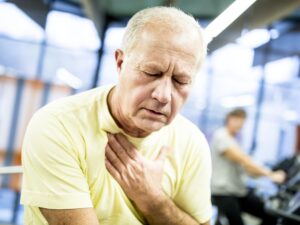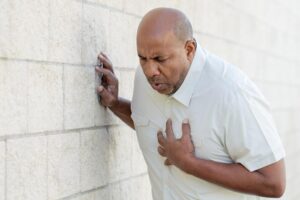Heart disease continues to be the leading cause of death in both men and women worldwide.
1.HIGH CHOLESTEROL
Lipids are fatty substances like cholesterol. They are essential for the body to function normally. Your body uses cholesterol to make vitamin D, hormones and cell membranes. Having an elevated level of lipids in your blood can have an adverse effect on your health. Adequate and timely control will prevent any major heart issues. Statin intolerance and side effects can be troublesome for some patients and thorough assessment or exploring newer medications may be required.

2. PALPITATIONS AND LIGHT-HEADEDNESS.
Palpitations could be a sign of heart rhythm problems which can be associated with light headedness, chest tightness or breathlessness. You can also become lightheaded for a variety of other reasons, including dehydration, skipping lunch, and standing up too quickly. This may need monitoring for varied time periods to establish an accurate diagnosis and tests like 24-72 hours ECG/Holter monitoring, Cardiac R test and implantable loop recorder (ILR) insertion may be indicated.

3. HIGH BLOOD PRESSURE.
High Blood pressure is often an easily missed risk factor for major heart problems as it remains undiagnosed in a high proportion of population. Early detection and treatment can ensure a long-term cardiac benefit. Sometimes patients can have resistant hypertension (not responding to multiple tablets) and this needs thorough assessment and personalised treatment planning. We organise investigations to diagnose any underlying causes of High blood pressure and also tests like 24-Hour BP monitoring to optimise the treatment.

4.CONSTANT HEART BURN.
Rarely constant heart burn could be one of the first symptoms suggesting an underlying heart problem. When the heart and other parts of the body don’t get adequate blood supply, gastric symptoms like an upset stomach, vomiting, or belching appear. Contacting your doctor is crucial, especially if you’re experiencing other heart related symptoms, as it may be mistaken for acid reflux or heartburn.

5. CHEST PAIN.
Uncomfortable pressure, squeezing, fullness, or discomfort in the middle of chest can be sign of coronary artery disease. Some people do not experience it as a “pain” and some feel it in the neck, jaw, or the left arm. Tests like CT coronary angiography (CTCA) with or without CT-FFR assessment, cardiac stress testing (stress echocardiogram/ Exercise treadmill test or stress perfusion cardiac MRI) or coronary angiography may be required for such symptoms.

6. SHORTNESS OF BREATH.
If climbing the stairs or walking the dog has become increasingly difficult for you recently, you should seek medical help. It’s possible that this is an indication that your heart is at risk. This could be due to various heart conditions for example, coronary artery disease, valvular heart disease or heart rhythm disturbances (arrythmias).
For more info follow:-https://www.bhf.org.uk/informationsupport/conditions
